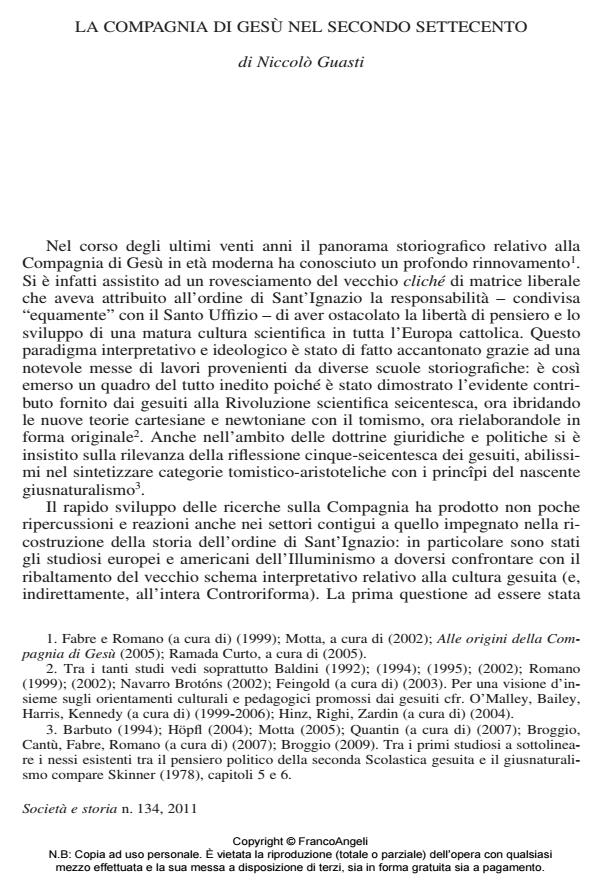The Society of Jesus in the late eighteenth century: an overview
Journal title SOCIETÀ E STORIA
Author/s Niccolò Guasti
Publishing Year 2012 Issue 2011/134
Language Italian Pages 12 P. 661-672 File size 479 KB
DOI 10.3280/SS2011-134001
DOI is like a bar code for intellectual property: to have more infomation
click here
Below, you can see the article first page
If you want to buy this article in PDF format, you can do it, following the instructions to buy download credits

FrancoAngeli is member of Publishers International Linking Association, Inc (PILA), a not-for-profit association which run the CrossRef service enabling links to and from online scholarly content.
In the last few decades the general outlook concerning the Society of Jesus in the early modern period has dramatically changed. The old liberal cliché, which held the Jesuits responsible for thwarting the rise of free thought and of modern scientific culture, has been replaced by a renewed attention to the Society’s complex strategy in dealing with the Enlightenment. During the 18th century two different reactions can be singled out: a conservative attitude, engaged in an intransigent defense of catholic orthodoxy against heretics and free-thinkers, and a more open-minded approach, whi- ch strove to absorb philosophical, theological and epistemological novelties into the main stream of the catholic tradition. This effort to christianize the Enlightenment, partly by sharing the century’s sociable tendencies, survived even after the suppression of the Jesuit Order by the Pope in 1773. The long interval between this event and the Society’s restoration (1793-1814) and the subsequent debate over the nature of the new Society as compared to the old, clearly reflected the political and cultural challenge posed by the French revolution and the Napoleonic régimes.
Keywords: Society of Jesus, enlightenment, cultural strategies, anti-jesuit black legend, education of the élites, the Restauration.
- Quale storia della società? Uno sguardo sull'epoca moderna Paola Bianchi, in SOCIETÀ E STORIA 178/2023 pp.711
DOI: 10.3280/SS2022-178005
Niccolò Guasti, La Compagnia del Gesù nel secondo settecento in "SOCIETÀ E STORIA " 134/2011, pp 661-672, DOI: 10.3280/SS2011-134001